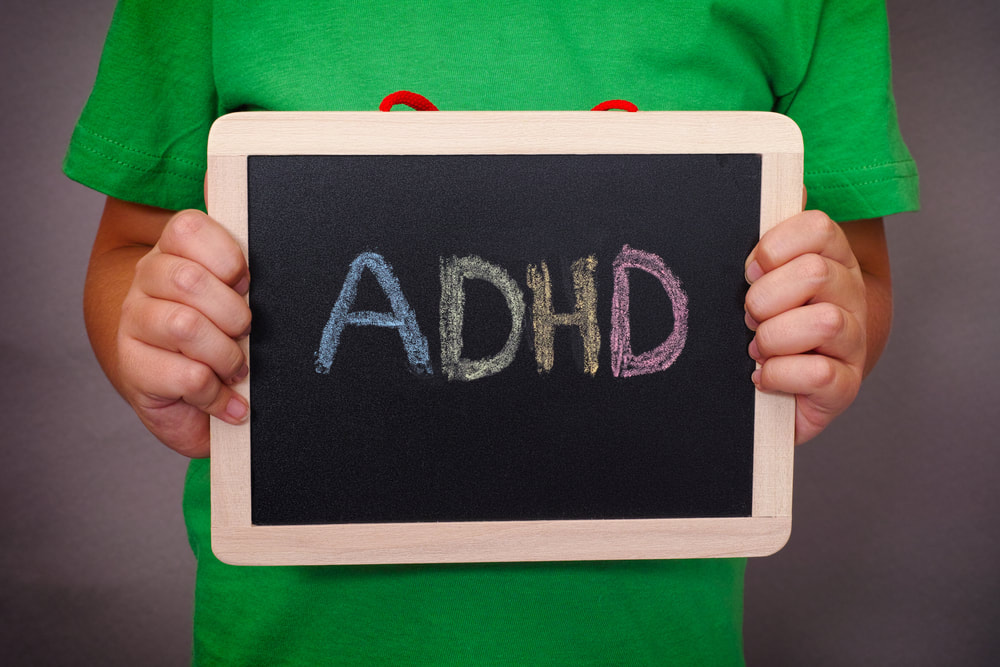|
In July 2018, an Austin, Texas woman faced the possibility of deportation after experiencing a mental health crisis. The woman went missing, and when police found her, she threatened to harm herself and appeared to have delusions. Rather than help her find mental health treatment, the police officers decided to handcuff the young woman. In response, the woman acted aggressively toward the police officers which lead to her arrest for assault on a public servant. After her arrest, U.S. Immigration and Customs Enforcement (ICE) put a hold on her. So instead of receiving the mental health treatment she so desperately needed, the young woman with schizophrenia was now facing deportation.
The Source of the Problem ICE eventually dropped the hold on the young woman after pressure from multiple attorneys. But this young woman is not the first person with a mental disability to face deportation after a mental health crisis. The problem is that many jurisdictions send armed police officers into situations involving someone with mental health issues who may be acting erratically but are not committing a crime. These officers may not be trained on how to handle someone with a mental illness and often lose patience during a mental health crisis. Their tactics may escalate a situation that could otherwise be handled by someone with the proper training. This escalation of a mental health crisis often leads to the arrest of the person having the crisis. The person may not respond well to the officers' tactics and act in a seemingly aggressive manner. Once the person is in the criminal justice system, they become subject to an ICE detainer which puts them face to face with the possibility of deportation. This is especially true in states like Texas where sanctuary cities have been prohibited, and ICE is contacted when someone is suspected to be undocumented. Solutions Mental health advocates say that the way to avoid deportations of those in a mental health crisis is to prevent arrests of those with mental illness and instead direct them toward treatment. Programs like the one in Dallas that pairs police officers with social workers and paramedics can be put into place to change the way first responders treat mental health crises. With trained professionals on the scene who can de-escalate a situation, fewer arrests will result, and fewer individuals will face deportation as a result of their mental illness. If you or a loved one with a mental disability has been arrested or convicted of a crime, you need an experienced criminal defense attorney on your side. Elizabeth Kelley specializes in representing individuals with mental illnesses and intellectual and developmental disabilities. To schedule a consultation call (509) 991-7058.
0 Comments
Attention deficit hyperactivity disorder (ADHD) is one of the most common mental disabilities affecting children. It is estimated that 8.4% of children and 2.5% of adults have ADHD. Individuals with ADHD suffer from hyperactivity, trouble paying attention, and impulse control issues. But do these factors lead to criminal behavior?
Link Between ADHD and Crime According to a 2010 study, more than 40% of long-term prison inmates were diagnosed with ADHD. Most of these prisoners were diagnosed with ADHD as adults. Another study found a link between childhood ADHD diagnosis and adult criminal activity. The Yale study found that children diagnosed with ADHD were twice as likely to commit theft as an adult and 50% more likely to sell drugs. Up to two-thirds of young offenders in the criminal justice system screened positively for childhood ADHD. Why is there a Connection? ADHD symptoms include aggression, lack of impulse control, inattentiveness and poor emotional control. Without proper treatment, people with ADHD may not have a clear understanding of how to manage symptoms. Couple this with problems adjusting in childhood and going to a school that is not meeting the needs of a person with ADHD and it is easy to see how someone with the diagnosis may commit crimes. Education and Treatment Help While most people with ADHD do not commit crimes, it is still important for parents of children with the diagnosis make sure to properly educate themselves and their children about the symptoms and the available treatments. Parents should pay very close attention to children with the symptoms of ADHD and seek out a diagnosis sooner rather than later. Catching ADHD early can help families learn to deal with impulsiveness early and learn ways to manage symptoms. Children and adults can learn to help control their symptoms and sometimes use them to their advantage. Families can educate themselves about ADHD by seeking a good psychologist who specializes in the condition. Joining a support group for people with ADHD can also be helpful in helping to learn ways to manage the condition properly. It is essential to be patient with ADHD and understand that finding the proper treatment can take months or even years. If you or a loved one has a mental disability and has been arrested or convicted of a crime, you need an experienced criminal defense attorney on your side. Elizabeth Kelley specializes in representing individuals with mental disabilities. To schedule a consultation call (509) 991-7058.
After every tragic school shooting the national conversation turns toward gun control and better mental health treatment. It's an encouraging sign that lawmakers and policymakers want to increase the focus on mental health treatment, but is there really any evidence that better mental health care is the solution to school shootings?
Can We Predict School Shooters Based on Mental Illness? With sensationalist headlines and social media outcry, it might appear that mental health issues are a significant cause of school shootings. While there is some correlation between mental illness and mass shootings, most school shooters don't have a mental health diagnosis at the time of their violent acts. Loneliness is not a psychiatric condition. Rage is not a diagnosable mental illness. These are common characteristics of mass shooters. Other common characteristics include fascinations with firearms, drug and alcohol use, and difficult childhoods. Many students who are not shooters have these same characteristics. These may not act as red flags pointing to a treatable condition. It is also difficult to predict who will become a mass shooter even if all of these factors are taken into account. So what indicators do you use to pick a student out of a crowd and force them into treatment? Associating mental illness with mass shootings increases the stigma against those with mental health issues. Looking at those with psychiatric conditions as potentially violent is misplaced. Mental illness is statistically a poor predictor of violent behavior. Individuals with psychiatric conditions are much more likely to be crime victims and not crime perpetrators. Will Increased Treatment Help? Focusing mental health treatment on an effort to predict school shooters misses the bigger picture. Many students suffer from difficulties and concerning behaviors, therefore better mental health treatment is clearly needed. This treatment should be used as a tool to protect at-risk students from harming themselves rather than as a way to identify and handle possible school shooters. Identifying students in crisis and offering them help may prevent future violent behavior but it should not be relied upon as a guarantee that school shooters will be stopped. If you or a loved one has a mental disability and has been arrested or convicted of a crime, you need an experienced criminal defense attorney on your side. Elizabeth Kelley specializes in representing individuals with mental disabilities. To schedule a consultation call (509) 991-7058.
Several years ago in California, then Governor Jerry Brown signed a law that would allow judges to order community mental health treatment instead of prosecution for crimes committed by mentally ill individuals. While prosecutors and other critics of the law fear it could open a dangerous door when it comes to serious crime, it’s clear that something must be done about the increasing number of mentally ill prisoners on California.
Crisis in California Over the previous three years, the number of mentally ill inmates in California jumped by 33%. Overcrowding of state hospitals and other treatment facilities led to many individuals who were declared incompetent to stand trial being placed in jail rather than receiving treatment. These individuals sit in jail indefinitely, not convicted of a crime but not able to leave because they have been charged with a crime. If they later become competent to stand trial, they may be convicted of a misdemeanor or a lesser felony and then released on the streets without being treated adequately due to prison overpopulation. In a 2017 report, the Stanford Law School's Justice Advocacy Project found that 30% of California's prisoners were receiving treatment for a severe mental disorder such as schizophrenia, bipolar disorder, or psychotic disorder. The rising mentally ill prison population was a severe problem in California that needed to be addressed. New Law The law vastly increases the number of criminal suspects that can be diverted away from the criminal justice system and into mental health treatment. The law allows diversion for any suspect with a mental illness, including schizophrenia and bipolar disorder, even if they have committed serious or violent felonies. If a suspect can show that they have a mental disorder and that they do not pose an unreasonable risk to the public, they may be placed in the program. Criminal proceedings would be suspended, and the suspect would receive mental health treatment for up to two years. If a suspect successfully completes the diversion program and the judge believes that the offender is unlikely to commit another felony, the judge can dismiss the criminal charges. Prosecutors across the state want to limit the program to individuals charged with misdemeanors and nonviolent felonies. They believe the law should be scaled back. But disability rights advocates and public defenders believe the law is necessary to combat the poor mental health treatment available in California jails and prisons. The law leaves it up to the discretion of individual judges whether they believe an individual should be placed in the program. If you or a loved one has a mental disability and has been arrested or convicted of a crime, you need an experienced criminal defense attorney on your side. Elizabeth Kelley specializes in representing individuals with mental disabilities. To schedule a consultation call (509) 991-7058.
Police officers, firefighter, paramedics, and corrections officers have dangerous jobs and put their lives on the line every day. However, research shows that first responders are more likely to die from suicide than they are to die in the line of duty. First responders face on the job stress daily and experience being taken hostage, being threatened with guns, injuries or deaths of bystanders and co-workers, and watching people die. These critical events can take a serious toll on the mental health of first responders.
Rates of Mental Illness A Canadian study published in 2017 surveyed 6,000 public safety personnel and found that substantial numbers of the study participants demonstrated symptoms of mental illness. The results indicated that 44.5% of the study participants screened positive for clinically significant mental health symptoms. This statistic is significantly higher than the 10% mental illness diagnostic rate among the general population. The most frequently indicated mental illnesses included post-traumatic stress disorder (PTSD), depression, and panic disorders. The highest rates of these illnesses were found among corrections officers. The study shows that mental illness among first responders is a serious issue that deserves serious attention. There are obvious factors that could lead to the prevalence of mental illness, but are there adequate treatment options available to these individuals? Treatment Among many first responders, there is still a stigma associated with mental illness. These individuals feel that seeking treatment takes away from the perception that they are strong and tough in the face of adversity. They may feel that seeking treatment will put a blemish on their records and prevent them from achieving career advancement. For some, there may be a perception that honesty around mental illness is career-destroying. Police departments, fire departments and prisons need to create a culture where getting treated for mental health issues is normalized and, in fact, expected of everyone. Departments should treat mental health no differently than physical health. Departments should provide high quality Employee Assistance Programs (EAP) and encourage employees to take advantage of them. In addition, departments should include training on mental health and wellness and make employees aware of available resources. If you or a loved one with a mental illness or intellectual or developmental disability has been arrested or convicted of a crime, you need an experienced criminal defense attorney on your side. Elizabeth Kelley specializes in representing individuals with mental illnesses and intellectual and developmental disabilities. To schedule a consultation call (509) 991-7058. |
Details
Archives
March 2024
Categories |





 RSS Feed
RSS Feed